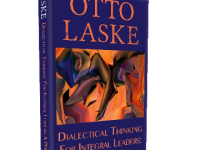This article, chapter 9 of Demick et al’s Handbook of Adult Development (Springer 2002), tries to escape the tunnel vision of organizational theorists and consultants alike who, while glorifying leaders, cannot penetrate to the adult-developmental origins of leadership and get lost in psychological or spiritual speculations, or else lists of competences. Instead, the article adopts the distinction between “ontic” and “agentic” development, that is, the development that happens over human resources’ life span development, on one hand, and the organizational mechanisms put in place to “develop” them, on the other.
The article conceptualizes executive development as a lawful developmental modification of an individual’s professional agenda and universe of discourse in the cognitive and social-emotional sense or, to speak with E. Jaques, his/her Size of Person. Refining Argyris, three levels of professional agenda are distinguished. M. W. McCall Jr.’s (1998) and D. T. Hall’s writings (1996) are focused on in order to clarify contemporary theorists’ views, referring to McCall’s “five dilemmas” of human development in organizations. The article focuses on the dialectic of managerial strengths and weaknesses, the organizational shift to the “Proteian” (internal) career, and introduces Kegan’s and Basseches’ work alongside with empirical findings of the author.
Laske, Executive Development 2002
